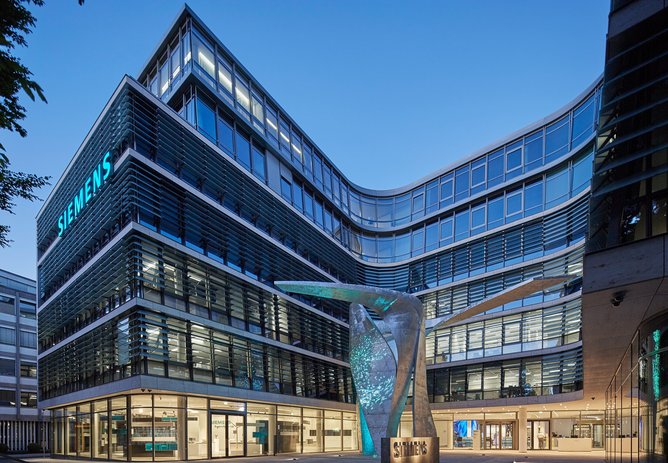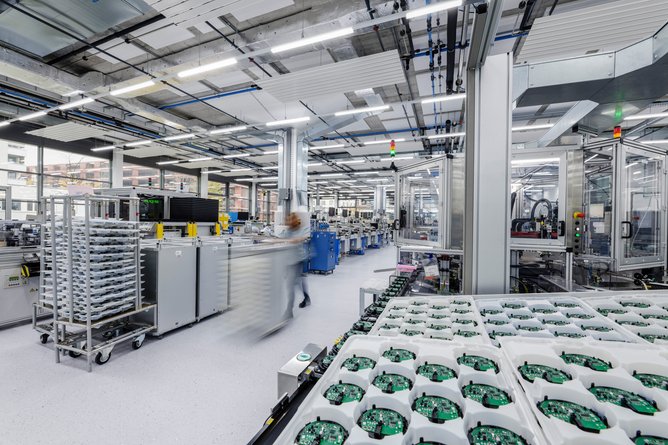Siemens: Embracing Technology to Manage the Unexpected

“SCM leadership should focus on inspiring employees to embrace and master the technologic resources at our hands, so that we can excel at managing The Unexpected in these increasingly complex global markets,” explains Staubitzer in a new blog post.
He argues in the fast-paced landscape of supply chain management (SCM), the year 2024 demands a shift in focus towards embracing technological advancements to tackle the challenges of global markets. Klaus Staubitzer, CPO & Head of Supply Chain at Siemens AG, emphasises the need for SCM leaders to inspire their teams to leverage technology effectively, particularly in managing the unexpected disruptions that have become constant in today's world.

Staubitzer stresses the importance of integrating efficient digitalized and AI-backed processes into SCM strategies. These technologies enhance transparency and predictability, empowering businesses to react swiftly to both major and minor global shifts. Sustainable sourcing emerges as a critical lever for enhancing supply chain resilience, highlighting the necessity for businesses to adapt to the new normal of constant disruptions.
A cornerstone of resilience lies in the systemic utilisation of digitalization and AI. Transparent supply chains enabled by digitalization provide essential data for informed decision-making and predictive analytics. The gradual integration of AI tools further enhances the accuracy of predictions and the success rate of solutions through continuous learning from accumulated data.
“As we are all well aware, the landscape of supply chain management and procurement has been tumultuous in recent years, dominated by a continuous cycle of fire-fighting and adaptation in response to global disruptions,” he says.
“This shift in perspective obviously requires a shift in strategy as well: We need to integrate the unexpected into long-term strategic planning – with resilience against global disruption as the ultimate goal,” he adds.
Siemens and sustainable supply chain technology
Staubitzer argues the significance of enhancing resilience and sustainability through technological advancements. Tools such as the Green Digital Twin and SiGREEN developed by Siemens offer opportunities to make supply chains more resource-efficient and sustainable, thereby driving cost efficiency and environmental responsibility.
“This approach of course holds profound implications for our sourcing strategies,” he says.
“By for example leveraging existing tools, businesses can track not only the carbon footprint of products, but also assess other sustainability metrics, such as water usage. This technological advancement propels the acceleration of Scope 3 upstream supplier decarbonisation.”
Collaborating with procurement and supply chain networks
Collaboration within the supplier network emerges as another crucial aspect of SCM leadership in 2024. With innovation being paramount in overcoming complex challenges, fostering collaboration and leveraging supplier innovation can significantly enhance the development of sustainable and efficient production ecosystems.
Inspiring and training employees to embrace AI as an opportunity rather than a threat is essential for future-proofing industries. Staubitzer emphasises that humans in the workforce will not be replaced by AI, but rather by individuals who possess the skills to operate and handle AI effectively.

“I am absolutely sure that pooling creativity, intelligence, and data insights can significantly enhance the development of tools and strategies for a more sustainable and efficient production ecosystem,” he says.
“I am convinced it is now a matter of inspiring and training humans in a way that AI is not seen as a threat, but as a chance to future-proof industries.”
The successful implementation of digital processes and AI tools requires the adaptation of underlying processes. Staubitzer highlights the necessity for businesses to review and refine basic processes to align with sustainability and resilience goals.
“The journey towards a resilient and sustainable supply chain is complex, but with the right strategies in place, businesses can thrive in the face of the new normal, ensuring their viability and competitiveness in this rapidly changing and always-surprising world,” he concludes.
Make sure you check out the latest edition of Procurement Magazine and also sign up to our global conference series - Procurement & Supply Chain LIVE 2024
**************
Procurement Magazine is a BizClik brand






